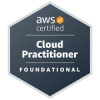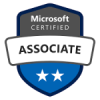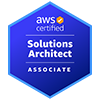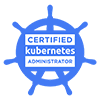
Top 10 Cloud Server Providers in the World
Cloud servers have become the backbone of modern businesses, supporting everything from data storage and application hosting to AI-driven analytics and global communication networks. As more companies shift to cloud solutions, choosing the right cloud server provider is essential to achieving high performance, security, and scalability. Here’s a look at the top ten cloud server providers worldwide, renowned for their cutting-edge technologies, robust infrastructure, and vast service portfolios.
1. Amazon Web Services (AWS)
- Overview: AWS is the world’s most popular cloud provider, offering a broad range of services, including compute power, storage, machine learning, and databases. Known for its scalability, reliability, and extensive features, AWS serves everything from startups to multinational enterprises.
- Key Services: EC2 (Elastic Compute Cloud), S3 (Simple Storage Service), Lambda (Serverless Computing), RDS (Relational Database Service)
- Strengths: Massive global reach, large range of services, strong support for hybrid and multi-cloud deployments
2. Microsoft Azure
- Overview: Microsoft Azure is a leader in cloud computing, especially popular among enterprises already using Microsoft products. It offers a rich suite of services with a focus on hybrid cloud solutions, AI, and IoT.
- Key Services: Virtual Machines, Azure SQL Database, Azure DevOps, Cosmos DB, Azure AI
- Strengths: Strong integration with Microsoft ecosystem, hybrid capabilities, extensive compliance offerings
3. Google Cloud Platform (GCP)
- Overview: Google Cloud is known for its advanced data analytics, machine learning, and AI capabilities. It provides high-performance infrastructure and is ideal for data-driven applications.
- Key Services: Google Compute Engine, BigQuery, Google Kubernetes Engine, Cloud AI, Cloud Storage
- Strengths: Industry-leading machine learning and data analytics, Kubernetes expertise, strong support for multi-cloud
4. IBM Cloud
- Overview: IBM Cloud focuses on hybrid cloud solutions and is a top choice for enterprises in need of scalable cloud computing. With its expertise in AI and security, IBM Cloud caters to a range of industries, particularly financial and government sectors.
- Key Services: Bare Metal Servers, IBM Watson AI, Kubernetes Service, Blockchain Platform
- Strengths: Hybrid and multi-cloud options, AI capabilities with Watson, secure cloud solutions, particularly for regulated industries
5. Oracle Cloud Infrastructure (OCI)
- Overview: Oracle Cloud Infrastructure is optimized for enterprise workloads, especially for companies using Oracle databases and applications. It provides high-performance computing with a strong emphasis on security.
- Key Services: Oracle Autonomous Database, Oracle Cloud Infrastructure Compute, Exadata Cloud Service
- Strengths: High performance and security, strong support for Oracle applications, autonomous database technology
6. Alibaba Cloud
- Overview: Alibaba Cloud, China’s largest cloud provider, is a leader in Asia and is expanding globally. It offers a comprehensive suite of cloud services, catering to both Chinese businesses and international companies.
- Key Services: Elastic Compute Service (ECS), ApsaraDB, MaxCompute, Alibaba Cloud AI
- Strengths: Strong presence in Asia, advanced data and AI services, cost-effective solutions
7. DigitalOcean
- Overview: DigitalOcean is known for its simplicity and affordability, targeting startups and developers. It provides virtual private servers (droplets) and a range of cloud solutions focused on small to mid-sized businesses.
- Key Services: Droplets (Virtual Servers), Kubernetes, Managed Databases, Spaces (Object Storage)
- Strengths: User-friendly interface, affordable pricing, reliable performance for small businesses
8. Salesforce Cloud (Heroku and Force.com)
- Overview: Salesforce Cloud is popular for CRM and application development. Heroku, part of Salesforce, provides a platform as a service (PaaS) for developers, while Force.com enables enterprise-level application development.
- Key Services: Heroku, Force.com, Salesforce Einstein (AI)
- Strengths: Industry-leading CRM integration, robust development environment, strong support for enterprise applications
9. VMware Cloud
- Overview: VMware Cloud is a major player in the hybrid cloud space, offering solutions that integrate on-premises infrastructure with public clouds. It enables organizations to migrate and manage their existing workloads on VMware’s cloud infrastructure.
- Key Services: VMware Cloud on AWS, vSphere, NSX, vSAN
- Strengths: Strong hybrid and multi-cloud capabilities, seamless integration with existing VMware environments, extensive partner ecosystem
10. Tencent Cloud
- Overview: Tencent Cloud is a prominent cloud provider in Asia, especially in gaming and media. Tencent offers a broad range of services and supports international companies looking to expand in China.
- Key Services: CVM (Cloud Virtual Machine), TDSQL (Distributed Database), Cloud Object Storage, Tencent AI
- Strengths: Extensive network in Asia, strong support for gaming and entertainment industries, competitive pricing in the Asian market
Factors to Consider When Choosing a Cloud Server Provider
- Scalability: Consider the provider’s ability to scale resources on demand as your business grows.
- Performance and Reliability: Look for providers with strong uptime guarantees and global data center networks to reduce latency.
- Security and Compliance: Choose a provider that meets industry-specific regulatory requirements, such as GDPR, HIPAA, and ISO certifications.
- Cost Efficiency: Compare pricing models (pay-as-you-go, reserved instances) and understand how the provider’s cost structure fits your budget.
- Support for Multi-Cloud and Hybrid Solutions: Multi-cloud or hybrid options can increase flexibility and reduce the risk of vendor lock-in.
- Developer Tools and Services: For development teams, access to CI/CD pipelines, machine learning tools, and APIs can improve productivity.
Conclusion
The top cloud providers in the world offer a range of features and services tailored to different business needs, from startups to large enterprises. Amazon Web Services, Microsoft Azure, and Google Cloud Platform lead in terms of features and reach, while specialized providers like DigitalOcean and IBM Cloud offer targeted solutions for unique needs. When choosing a cloud provider, consider your organization’s specific requirements, budget, and long-term strategy to ensure that you select the best fit for your needs.



